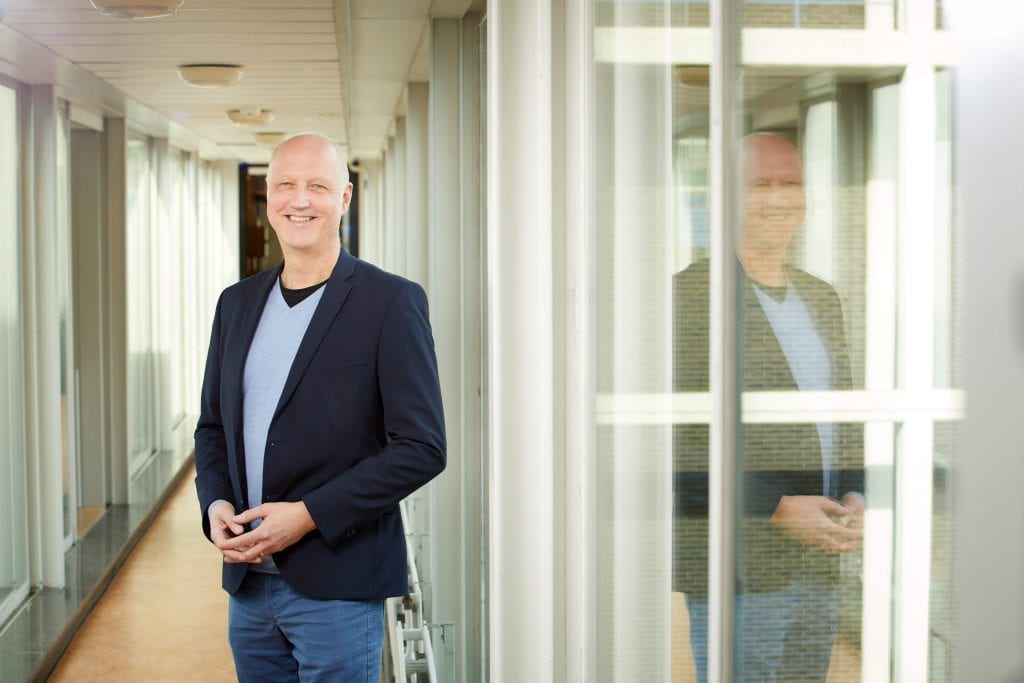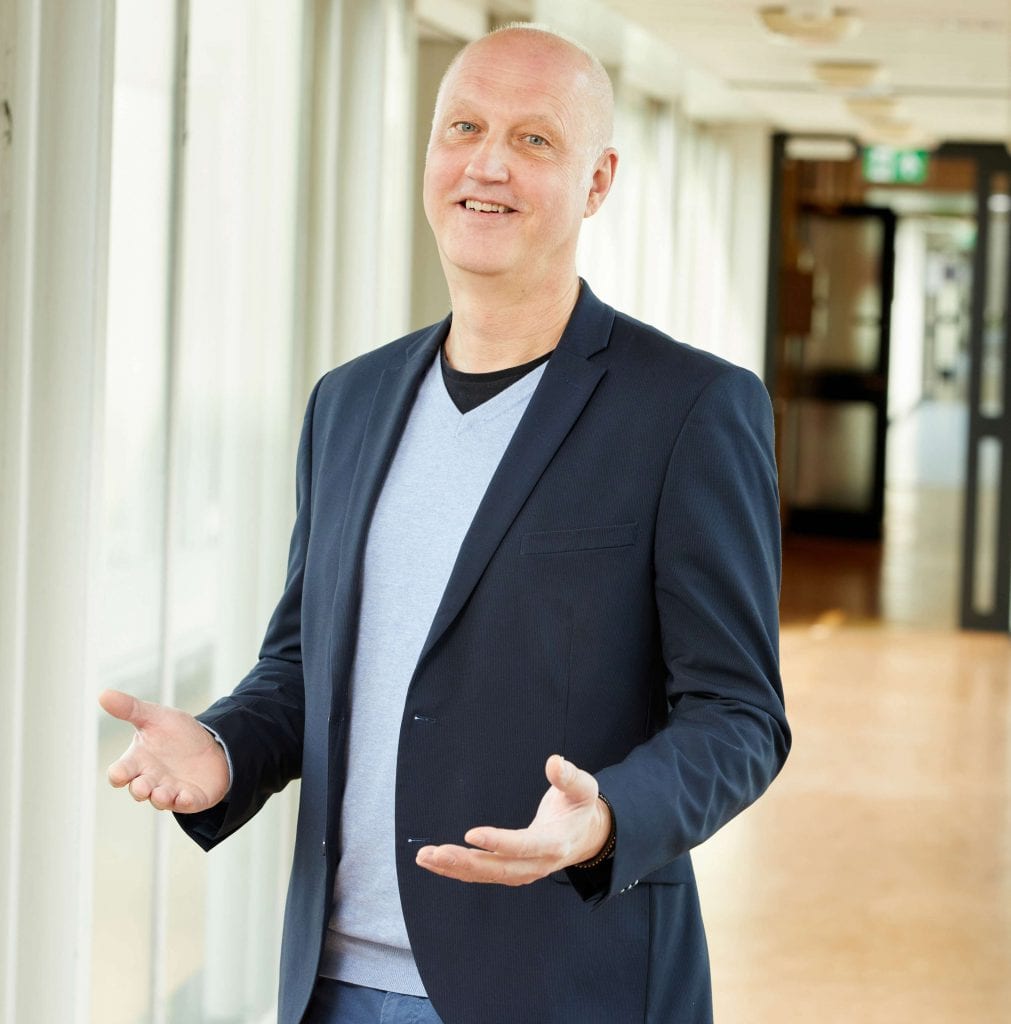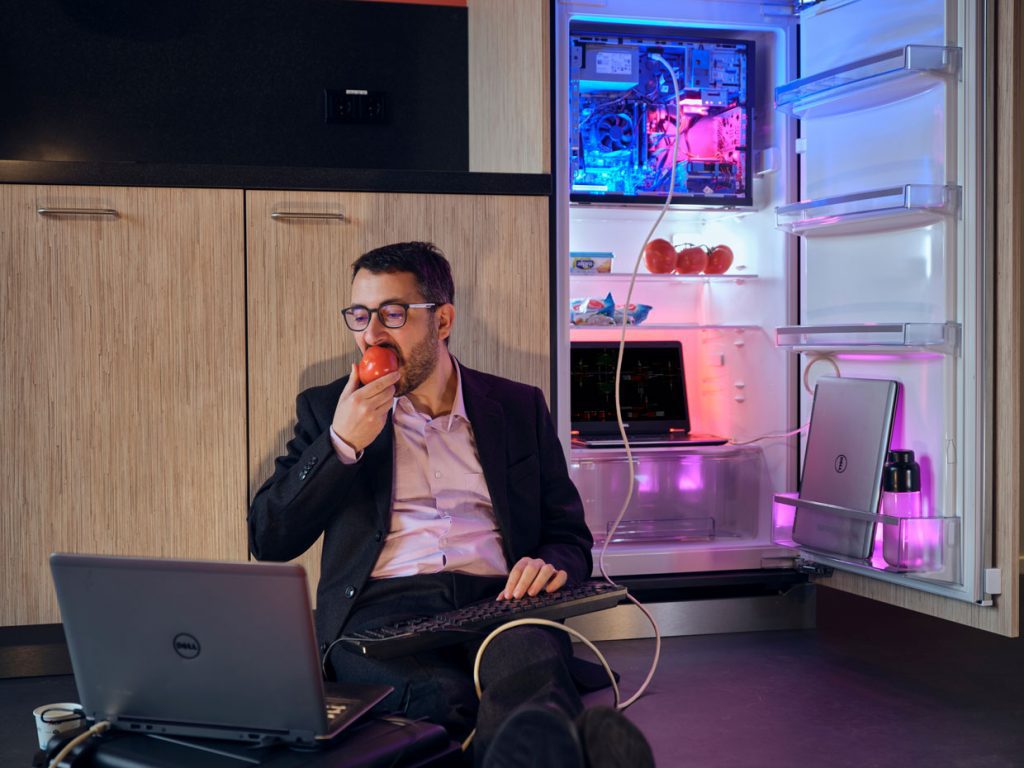Stories of Quantum
Stoking fires to accelerate quantum

Making the most of business activities and industrial collaboration, QuTech’s Director of Business Development Kees Eijkel wants to stoke the fire of collaboration in quantum computing and quantum internet still further – and in doing so attract new talent to Delft.
You might want to perform calculations at lightning speed, make new medicines faster and better. Or create more accurate weather forecasting, or calculate how to make new materials. These are just examples of what quantum computers could make possible. Quantum computers make calculations much faster than a conventional computer. This is the technology of the future, and QuTech in Delft is one of the places making it a reality.
Most striking are the scientists who work on the challenge every day. For example, they develop the parts that make up such a computer. Eijkel is not a researcher in quantum technology, but he makes a very important contribution. As Director of Business Development, he enlists help from third-party companies: “Working together on this new technology is how we make each other stronger. By collaborating with others, we are able to significantly accelerate development.”
“The goal here is to enable the quantum super-computer of the future, a task no organization can fulfil alone.”
Lots of little fires
According to Eijkel, what matters most is increasing the available knowledge. “The goal here is to enable the quantum super-computer of the future, a task no organization can fulfil alone. Our scientists and researchers measure up to the best in the world, and they are already building well-functioning prototypes. But they can’t work alone. To go one step further, you need to cooperate with established companies and also with startups. Our startups take the technology to a next level, look for a market and commercialise it, and that isn’t our job at QuTech.” Eijkel is therefore busy stoking fires –encouraging talent both internally and externally to start startups. He said he wants all of those little fires, together with QuTech, to create an even bigger fire: “This is how we are building what I call a quantum ecosystem. Bundling all these fires together, has a much bigger impact than if we try to do everything by ourselves. We call this the ‘Quantum Delft Community’.”
Startup Qblox
Six companies have already emerged and another six are being explored. A good example, according to Eijkel, is the startup Qblox. Qblox was set up by researchers who previously worked at QuTech and is based on QuTech technology. It offers modules to control hundreds of qubits (the building blocks of the quantum computer). Eijkel: “Qblox is now making modules that we may soon be using, because they enable the next generation quantum computer. Their successes to date are down to their commercial approach and their ability to see the whole world as a market. We have demonstrated with prototypes that this technology works. Now Qblox is taking over, which benefits the entire development of the quantum computer. We believe that we at QuTech will also benefit from it.”
“If you want to work on the quantum computer you need to be here at Delft – the place for global talent.”

Talent to Delft
Eijkel said that many little fires and a proper ecosystem achieve even more: they attract talent: “Word of this work spreads, and it becomes a reality that if you want to work on quantum technology you need to be here at Delft – the place for global talent. Everything revolves around talent, knowledge and capital, and if you want to pursue a career in quantum then you come here! The Netherlands is also a nice, open society to live in, and a trading country connected to the whole world. This appeals to many talented researchers and entrepreneurs, and we showcase our opportunities at various conferences, including Inside Quantum Technology in the United States, which we co-organise.”
Puzzles of collaborations
Thanks to his work, Eijkel said that he sits at the interface between various worlds such as science, talent development and the stimulation of business activity: “I’ve always been attracted to interfaces, because that’s where a lot happens. You find innovation, clashes, progress and more. Science and companies can both reinforce and challenge each other. You see the same in chemistry. Where two reactive liquids mix, something happens, and I see something new every day. This field of work is dynamic, and never boring. The puzzles posed by collaborations between engineers, scientists and companies appeal to me.”
Eijkel has ended up in just the right place. As a little boy, he already had a diverse collection of friends around him. “Often the children in my groups of friends were very different. Such as the creative, special boy that nobody wanted to play with. Or a socially awkward friend. Often surprising and powerful people. We found each other in those groups of friends. It was not obvious that we could play together, but it still happened, and the most beautiful things came out of it. This led me, among other things, to the jazz circuit, where I used to be a trumpet player. In jazz everyone takes their own role, and the most beautiful music is created if you give each other the space to excel. This is just the same in my current position, and I always enjoy a day the most when many different people have helped and strengthened each other.”
Text: Robert Visscher | Photography: Geert de Jong – Cheeseworks

